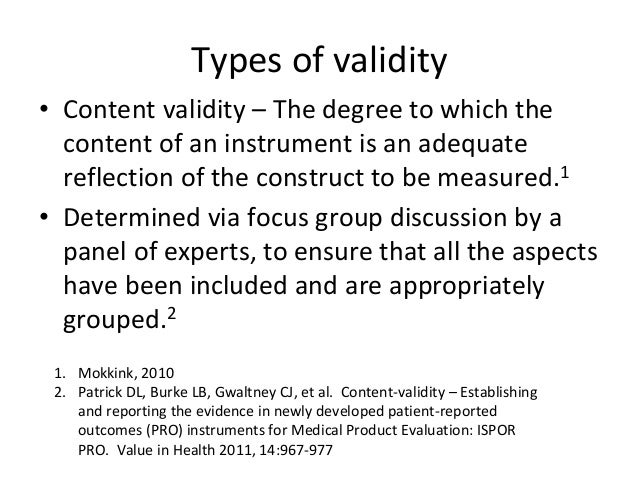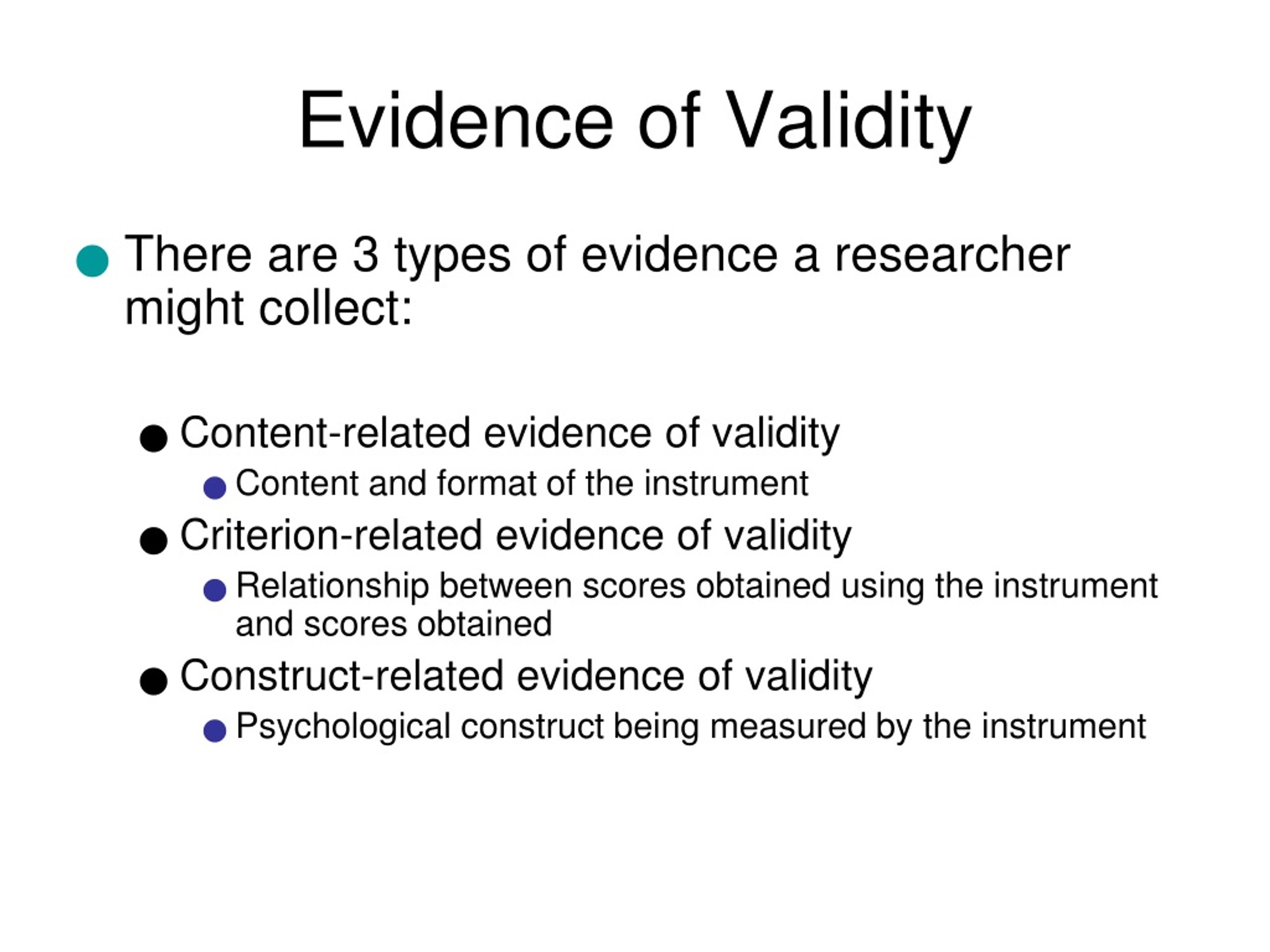
Understanding reliability vs validity
As data were extracted from the original sources, researchers must verify their accuracy in terms of form and context with constant comparison, either alone or with peers (a form of Porter S. Validity, trustworthiness and rigour: Reasserting realism in qualitative research. J Adv Nurs. ; – [Google Scholar · What is validity? Validity refers to how accurately a method measures what it is intended to measure. If research has high validity, that means it produces results that correspond to real properties, characteristics, and variations in the physical or social world. High reliability is one indicator that a measurement is valid · Validity refers to the accuracy of the measurement. Validity shows how a specific test is suitable for a particular situation. If the results are accurate according to the researcher’s situation, explanation, and prediction, then the research is valid. If the method of measuring is accurate, then it’ll produce accurate results

Search the forums now!
· When assessing the validity of data from a secondary source, you should be stating whether the information that you obtained from that source relates to your hypothesis or the problem that you are investigating. E.g. This source is valid As data were extracted from the original sources, researchers must verify their accuracy in terms of form and context with constant comparison, either alone or with peers (a form of Porter S. Validity, trustworthiness and rigour: Reasserting realism in qualitative research. J Adv Nurs. ; – [Google Scholar · Validity refers to the accuracy of the measurement. Validity shows how a specific test is suitable for a particular situation. If the results are accurate according to the researcher’s situation, explanation, and prediction, then the research is valid. If the method of measuring is accurate, then it’ll produce accurate results

Table of contents
· Validity refers to the accuracy of the measurement. Validity shows how a specific test is suitable for a particular situation. If the results are accurate according to the researcher’s situation, explanation, and prediction, then the research is valid. If the method of measuring is accurate, then it’ll produce accurate results · What is validity? Validity refers to how accurately a method measures what it is intended to measure. If research has high validity, that means it produces results that correspond to real properties, characteristics, and variations in the physical or social world. High reliability is one indicator that a measurement is valid Let’s take newspapers, for example. Tabloids that report mostly celebrity news and gossip and that have a reputation for being sued for publishing inaccurate information are not reliable sources, but newspapers such as the New York Times and the Houston Chronicle are considered valid and reliable sources

Construct validity
As data were extracted from the original sources, researchers must verify their accuracy in terms of form and context with constant comparison, either alone or with peers (a form of Porter S. Validity, trustworthiness and rigour: Reasserting realism in qualitative research. J Adv Nurs. ; – [Google Scholar · When assessing the validity of data from a secondary source, you should be stating whether the information that you obtained from that source relates to your hypothesis or the problem that you are investigating. E.g. This source is valid Let’s take newspapers, for example. Tabloids that report mostly celebrity news and gossip and that have a reputation for being sued for publishing inaccurate information are not reliable sources, but newspapers such as the New York Times and the Houston Chronicle are considered valid and reliable sources

What is Reliability?
· What is validity? Validity refers to how accurately a method measures what it is intended to measure. If research has high validity, that means it produces results that correspond to real properties, characteristics, and variations in the physical or social world. High reliability is one indicator that a measurement is valid · When assessing the validity of data from a secondary source, you should be stating whether the information that you obtained from that source relates to your hypothesis or the problem that you are investigating. E.g. This source is valid · Validity refers to the accuracy of the measurement. Validity shows how a specific test is suitable for a particular situation. If the results are accurate according to the researcher’s situation, explanation, and prediction, then the research is valid. If the method of measuring is accurate, then it’ll produce accurate results
No comments:
Post a Comment